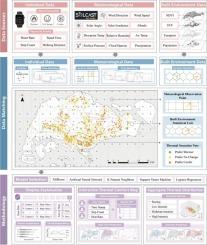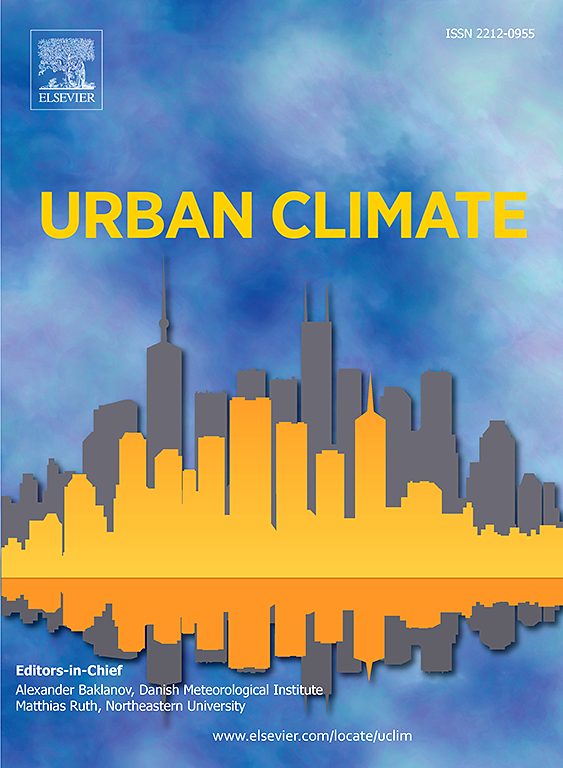Application of human-centric digital twins: Predicting outdoor thermal comfort distribution in Singapore using multi-source data and machine learning
IF 6
2区 工程技术
Q1 ENVIRONMENTAL SCIENCES
引用次数: 0
Abstract
In the face of global climate warming, outdoor thermal comfort in urban settings is increasingly critical. However, accurately predicting residents' thermal perceptions during outdoor activities remains challenging due to complex environmental dynamics. This study introduces a human-centered digital twin framework that integrates physiological data, atmospheric conditions, and urban building environment features, with multiple machine learning models employed to predict and analyze outdoor thermal comfort in different regions of Singapore. Among these methods, the Bayesian-tuned XGBoost model exhibits the highest accuracy (0.66), notably excelling in categorizing “Prefer cooler” and “Prefer no change” responses. SHAP value analysis identifies key influencing factors such as human activity intensity (heart rate), geographical location (longitude and latitude), meteorological conditions (solar azimuth angle, dew point temperature), and greenery (Normalized Difference Vegetation Index). Based on the most effective machine learning method, this research develops a user-personalized real-time prediction model for urban thermal comfort perception. The extensive hourly grid-based prediction results illustrate the spatiotemporal variations in outdoor thermal comfort, highlighting preference differences across locations, seasons, and activity levels. Results underscore the efficacy of the human-centric digital twin approach and machine learning in managing urban thermal environments, leveraging multi-source data to complement traditional survey methods effectively.

应用以人为本的数字双胞胎:利用多源数据和机器学习预测新加坡室外热舒适度分布
面对全球气候变暖,城市环境中的室外热舒适度越来越重要。然而,由于复杂的环境动态,准确预测居民在户外活动时的热感知仍然具有挑战性。本研究介绍了一个以人为中心的数字孪生框架,该框架整合了生理数据、大气条件和城市建筑环境特征,并采用多种机器学习模型来预测和分析新加坡不同地区的室外热舒适度。在这些方法中,贝叶斯调整的 XGBoost 模型显示出最高的准确度(0.66),尤其是在 "更喜欢凉爽 "和 "更喜欢不变 "的响应分类方面表现突出。SHAP 值分析确定了关键影响因素,如人类活动强度(心率)、地理位置(经度和纬度)、气象条件(太阳方位角、露点温度)和绿化(归一化差异植被指数)。基于最有效的机器学习方法,本研究开发了用户个性化的城市热舒适度感知实时预测模型。大量基于网格的小时预测结果说明了室外热舒适度的时空变化,突出了不同地点、季节和活动水平的偏好差异。结果强调了以人为中心的数字孪生方法和机器学习在管理城市热环境方面的功效,利用多源数据对传统调查方法进行了有效补充。
本文章由计算机程序翻译,如有差异,请以英文原文为准。
求助全文
约1分钟内获得全文
求助全文
来源期刊

Urban Climate
Social Sciences-Urban Studies
CiteScore
9.70
自引率
9.40%
发文量
286
期刊介绍:
Urban Climate serves the scientific and decision making communities with the publication of research on theory, science and applications relevant to understanding urban climatic conditions and change in relation to their geography and to demographic, socioeconomic, institutional, technological and environmental dynamics and global change. Targeted towards both disciplinary and interdisciplinary audiences, this journal publishes original research papers, comprehensive review articles, book reviews, and short communications on topics including, but not limited to, the following:
Urban meteorology and climate[...]
Urban environmental pollution[...]
Adaptation to global change[...]
Urban economic and social issues[...]
Research Approaches[...]
 求助内容:
求助内容: 应助结果提醒方式:
应助结果提醒方式:


